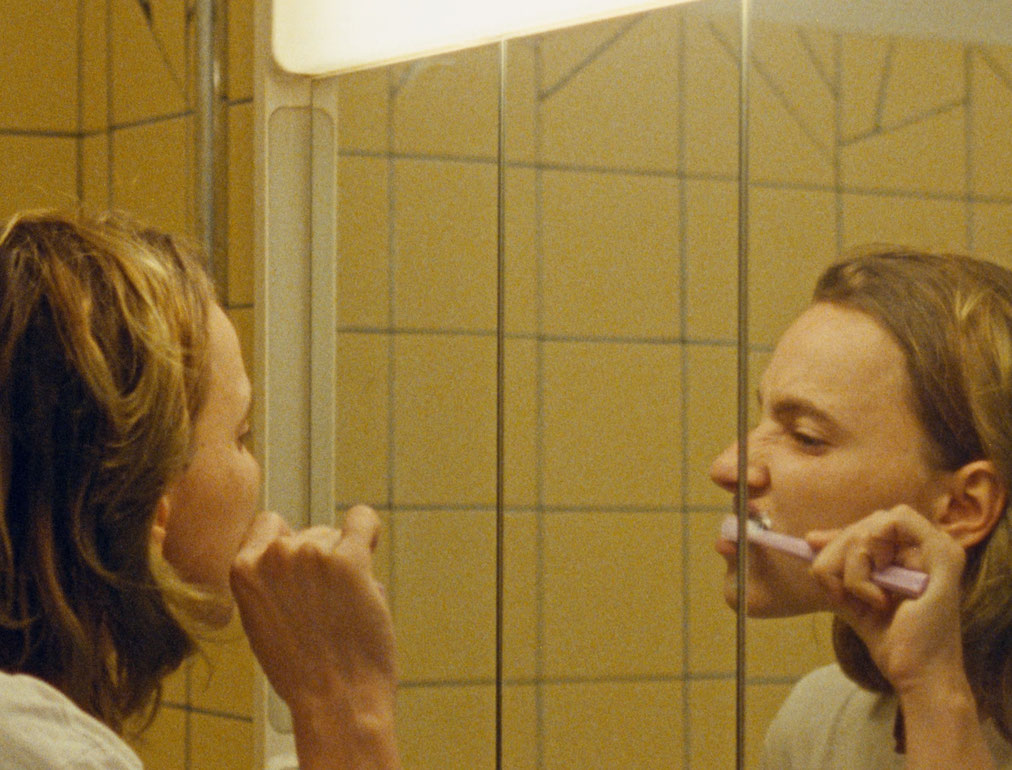BEATRIX
It is often maintained that films present intimate insight into the lives of their protagonists, usually implying a psychological or physical closeness. In the case of BEATRIX, intimacy is pursued to such an extent that it provokes a questioning of what intimacy really is.
BEATRIX presents a female body. It is the body of a young woman who spends a good amount of time alone in a house. One learns nothing more. She tends a bit to the house, gets bored, talks on the phone and receives visitors. One cannot help thinking of early films by Chantal Akerman, sensing a similarly estranged privacy. Both filmmakers invite us to spend time with an individual. But no use is made of this time which is instead dissipated, endured, exhausted. It is all about nothing less than an uncertain sense of being alive.
Every gesture made by the actress Eva Sommer is enacted as if she is self-conscious about a physicality she would far prefer to forget. The camera fragments the body of Beatrix into its individual parts. Her inner life becomes visualized by constricted images and a manic stillness. Something is eating at the apparent freedom of her solitude. A femininity becomes physically tangible – corners and curves, liquids, touches, deformations. BEATRIX shows banal, somnambulistic acts such as eating, drinking, cleaning, jumping, bathing, reclining, talking, and looking. And then it begins all over again.
What normally escapes our view is made entirely present. Urgency and ennui become one in an uncompromising confrontation with the existence of a young woman. (Patrick Holzapfel)
Translation: Eve Heller
BEATRIX
2021
Austria
95 min
feature fiction
German, Mandinka
English



